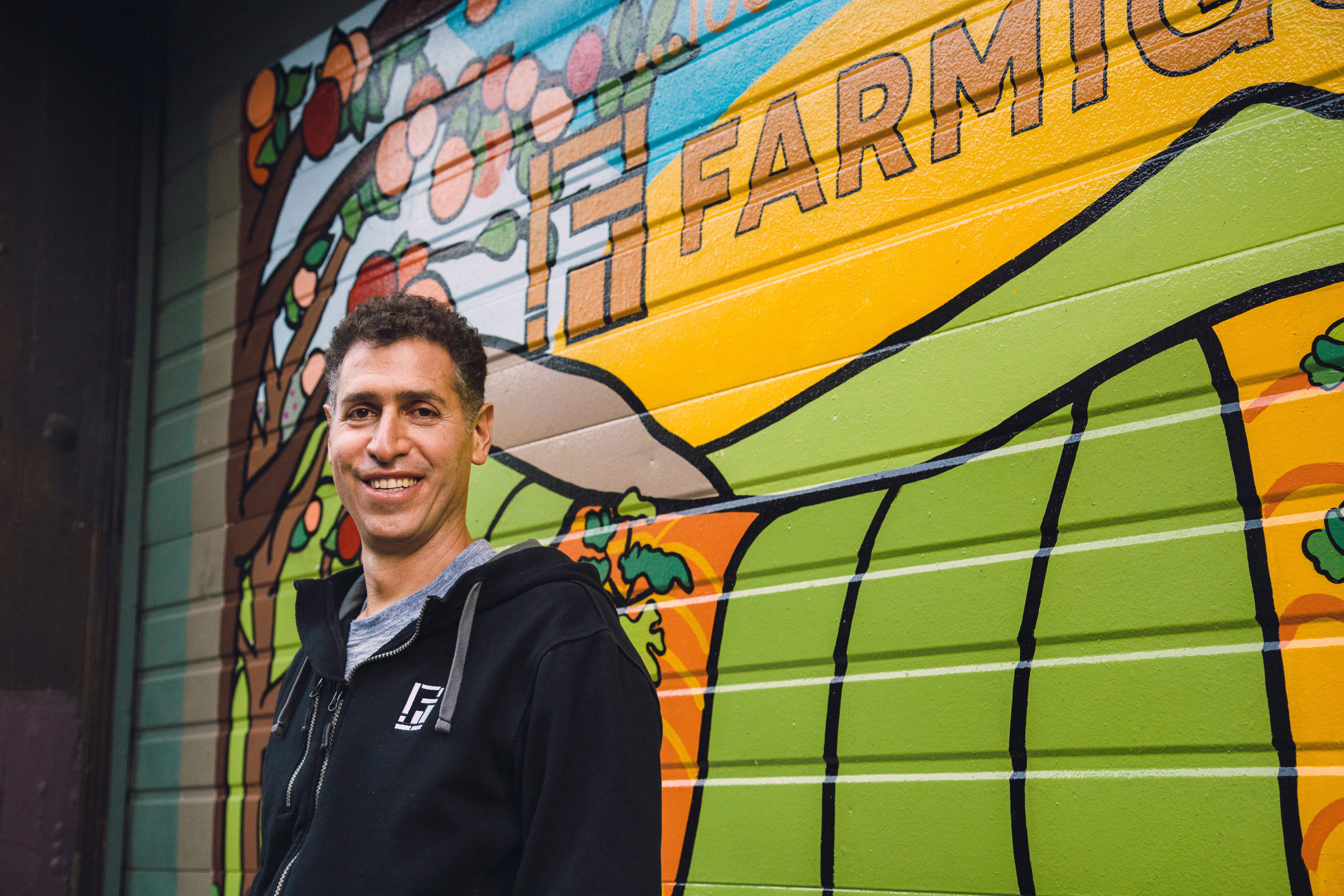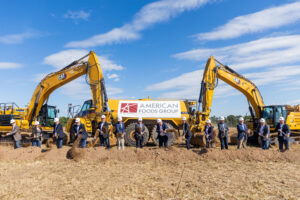“There was a period when the software was as important as the need to have incredible logistics,” says Benzi Ronen, CEO of Farmigo, which last week shocked the market by closing down its food delivery service.
Farmigo’s demise was a surprise for many consumers and investors because it was one of the more established food delivery services, and was popular among New Yorkers. But when it came to raising a new round of funding, Ronen and his partner Yossi Pik decided they had to focus on the software side of the business.
“We were in a position where we had the opportunity to go off on our own and ask some very basic, fundamental questions about what the company truly needed to be a wild success in the future, as well as what we were best able to execute on,” Ronen tells AgFunderNews.
“What we saw going forward was that the logistics leg had become the far bigger leg, and we’re not logistics people. The direction the business required was not what we as founders are best positioned to deliver, which is software.”
Ronen denied that the cost of customer acquisition contributed to the closure, arguing that the business’s customer growth was strong and that it was “moving in the direction of being profitable” in the regions that it served.
“Our growth was good; as an entrepreneur, you always want more and faster, but we had a very powerful acquisition model,” he says. “We acquired organizers, and they acquired members, and we were getting better at predicting who would be good organizers and at giving them the tools to be more successful at recruiting members.”
The issue was more in scaling the business to appeal to a bigger set of customers that had different demands than its core customer base; mainly on-demand delivery.
“There’s a new standard around same day delivery, and that requires better logistics, not software.”
“In order to make the company successful, we needed to improve the customer experience to be relevant for a larger percentage of the population, and that was around delivering food more frequently, cheaply, and easily,” said Ronen. “There’s a new standard around same day delivery, and that requires better logistics, not software.”
Ronen believes this is a challenge for the whole food e-commerce community as you cannot leverage existing logistics infrastructure to transport perishable products, unlike the non-perishable marketplaces like Amazon, which have partnered with existing services like FedEx and UPS to great success.
This won’t always be the case, he adds, and there are some food e-commerce companies with strong logistics backgrounds.
“I see food logistics building out, and when this new on-demand infrastructure exists and becomes a commodity, then there will be room for pure software players, like us, to connect into that,” he says. “Until that point, companies will need to manage the last mile themselves. We were contracting out to independent drivers, but we still had to create routes and ensure they were profitable and managed properly.”
Kate Danaher, a senior manager at RSF Social Finance, an impact-focused financial services company organization and a Farmigo investor, agrees that the logistics piece is much more challenging than people might think. RSF invests across sectors, but in food is very focused on rebuilding food systems.
“Moving food is a logistics business; it’s really hard to do, really expensive and is a very thin margin, slow growth business,” she said. “So it’s very likely the best decision for Farmigo is to focus on the software platform, but it’s unfortunate for the whole movement towards rebuilding the regional food systems, systems that the industrialization of our food system over the past 50 years has destroyed.”
She pointed to the challenges of scaling and replicating food delivery models across regions, where there are specific logistics challenges and a new set of customers to disrupt.
So where next for Farmigo and what is the software product?
When Farmigo was first founded in 2009, it was focused on building software for farms to power community supported agriculture (CSA). It only introduced the consumer delivery portion in 2013, but the software business never stopped running, and it serves 400 farms today, according to Ronen. The software-as-a-service (SaaS) helps farmers manage their existing relationships with customers and distributors from farmer’s markets to food hubs to local retailers. The plan is to eventually bring them more potential customers, according to Ronen.
There are some small niche players also doing CSA software but none at scale, argues Ronen and Danaher.
“We spoke to a lot of farmers about Farmigo’s software product a while ago and they loved it,” said Danaher. “It wasn’t perfect at the time, but it was the first back office software they’d come across that supported their needs; there aren’t enough of those.”
Danaher feels positive that Farmigo’s SaaS model will still support RSF’s mission to help rebuild food systems, because it provides for more efficient relationships between farmers, distributors, and consumers.
Ronen believes that Farmigo’s other investors will be supportive of the shift too.
“They invested in us because of our software capabilities and they believed in the incredibly robust software we built,” he said. “And with our experience with the food delivery business, we now better understand what farmers need to interact with different channel partners.”
Will Farmigo still need to fresh capital? No. Ronen had the unenviable task of laying off all employees that were linked to the delivery business, which has freed up capital to build out the software platform.
AgFunder wishes Farmigo well for the future!
Have news or tips? Email [email protected]





